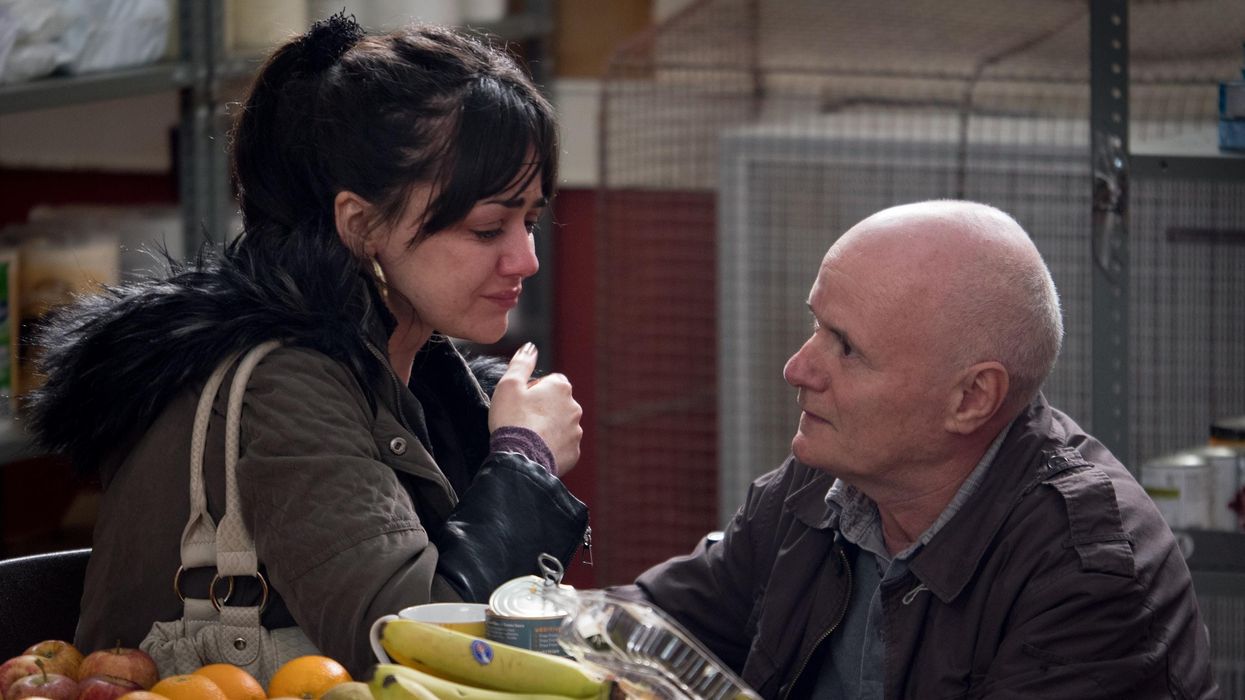'It Will Break the Heart of All': Palme D'Or Winner 'I, Daniel Blake' is Pure Cinematic Empathy
The 80-year-old filmmaker delivers a political message with grace and humanity.

I, Daniel Blake is the kind of movie that creeps up on you. Like its own guarded characters, the neorealist film reveals itself incrementally. Before you know it, you're emotionally invested in a deep and powerful way—angry, moved to tears, frustrated, confused, and scared for the future of Western society.
The Cannes 2016 premiere is from octogenarian Ken Loach (The Wind that Shakes the Barley), whose oeuvre demonstrates a deep empathy for the struggling working class. In I, Daniel Blake, the titular character, a 59-year-old carpenter from Newcastle, fights for welfare benefits following a debilitating heart attack. He's the definition of a decent man: competent, honest, and with a big heart. Yet as he stares into the abyss of the British social services system, Dan, who actually likes to work—and does so often to help others—is called a scrounger. He's humiliated by social services representatives, none of whom take responsibility for his situation or exert agency to help him, blaming the Orwellian "decision-maker" for their impotence. He's shamed for his traditional methods, which don't compete in the digital age. He's given a Kafkaesque run-around by a bureaucratic process designed to churn out the weak onto the streets. I, Daniel Blake is a political film, but it humanizes the plight of the poor in the way that only a good movie can: it introduces you to real people, shows you how honorable they are, makes you fall in love with them, and then breaks your heart.
"The most vulnerable people are told that their poverty is their own fault."
In fact, the film is entirely based on real experiences. Loach and writer Paul Laverty spent weeks on the road visiting food banks and organizations for disabled persons and talking to people in the Newcastle community. In many cases, they cast the people they met to play themselves in the locations in which they worked.
At the press conference in Cannes, Loach spoke about the dire situation facing the working class. "There is a conscious cruelty in the way we’re organizing our lives now," he said. "The most vulnerable people are told that their poverty is their own fault."
"It’s a project of fear and punishment," added Laverty.

One of the most striking elements of I, Daniel Blake is its intermittently humorous and tragic, but never patronizing, tone. For Loach, all this begins in the writing. "Often people write stories about people who are suffering, and they’re miserable all the time," he said. "That’s not the case. You go to the food banks and there’s laughter, comedy, silliness, stupidity. Warmth. If you cut out the humor, you miss the point."
Also essential to the tone is the film's cinematography, which Loach and DP Robbie Ryan engineered to be inconspicuous. "We felt the story was so strong that we had to be very simple with the cinematography," said Loach. "It didn’t need any embellishment." The duo worked together to find a style that was "clear and unadorned, without any extraneous movement, or anything to distract you from capturing the essence of the people in front of the camera and describing their situation with economy and simplicity."
Loach then quoted Bertolt Brecht: "When I say what things are like, it will break the heart of all."
Next month, Britain faces a major vote that could result in its secession from the European Union. Loach hopes that I, Daniel Blake will highlight the urgency of this "dangerous moment," which could strip the working class of the little power they still retain.
For perhaps the first time in recent memory, Rebecca O'Brien, one of the film's producers, believes the film industry is an ideal model for political cooperation. "The Euro film community working together in co-productions is a really good example of how Europe can work," said O'Brien. "This cultural example is what we should be following."
Check back for more coverage of the 2016 Cannes Film Festival.











